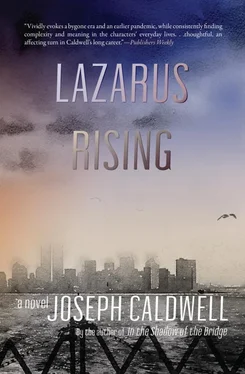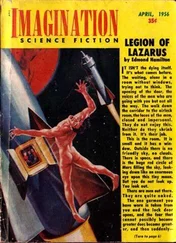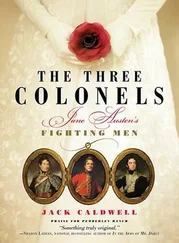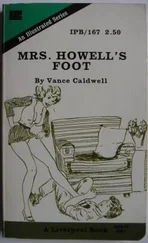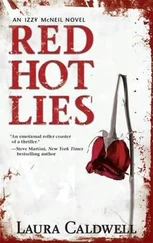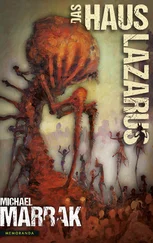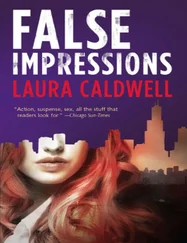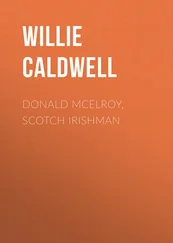In a breathless gasp, he said, “What—?”
Dempsey opened her mouth.
After a moment, Tom gasped out the word again. “What—?”
Dempsey pulled back a little and forced herself to say, “I—, I—, I just wanted to tell you to tell Michael I said, ‘Hi!’” So feeble. So stupid. She couldn’t possibly have been more inadequate.
But Tom slowly raised his right hand and put it gently on her cheek. Tears were welling up in his eyes. Still gasping, he said, “Oh, I will. I’ll tell him. I promise I will. And—and—thank—thank you.”
In a near whisper, Dempsey said, “It’s all right. It’s all right. Run along now. Michael’s waiting.”
Tom let out a long breath, moved his lips in an effort to smile, then turned around. He moved his torso forward three times, then took a first step. Then a second. Dempsey stayed where she was. She would wait until he had reached the pier. And as she watched and she waited, the word cured came to her in a completely different context than it had before. The only words that came to her now were: Why me and not him? And why not Michael?
Tom had reached the pier. Dempsey slowly turned and started back to Hudson Street. It was immediately apparent that she had been given a new refrain, one that again she must repeat over and over again. Why me and not him? Why me and not them? The one difference between this experience and the one before was that it was accompanied by a persisting image: Tom, enfeebled, walking out onto the Christopher Street Pier.
There were fewer passengers on the upper deck, and Johnny was able to find an empty bench in the forward area. No one was directly behind him, and only one man three benches in front. The man was reading a magazine, a reasonable assurance that he’d continue reading for the entire trip and not feel he had a right to talk to Johnny because Johnny was wearing his fireman sweatshirt. People never bothered cops; priests and firemen were always fair game for anyone who wanted someone to listen. Johnny, when he’d left the loft, had forgotten what he was wearing; he should have been more attentive. But he wasn’t.
He settled onto the seat , squirming a little—as if a bench on the Staten Island Ferry could somehow be made more comfortable if one just made the effort. He listened carefully for sounds. There was only the low growl of the motor and, far in the back, the low-pitched conversation between two teenaged girls, both of them Asian.
Johnny opened his manual. The exam was still over a month away, but he considered himself a slow study and applied the maxim drilled into him by his high school English teacher: Repetitio mater studiorum est. Repetition is the mother of study. Well, he would repetitio and repetitio and hope some of the repetitio s made it through his skull and into his brain.
Ordinarily he would go out on deck and look at the Brooklyn Bridge until the ferry had veered to the right toward the Statue of Liberty and Ellis Island. Then he would cross to the other side and look at EIlis Island. After that he would have a hot dog. Then he would move forward and watch the home island come closer and closer, stealthy in its approach, but harmless. But now he was supposed to study. He had promised himself he would study and he must not break his promise.
He opened the manual to the section on ladders. He had already gone through the subject—more than twice—but it wouldn’t hurt to do it again. When a thirty-foot ladder is being raised to the roof, the point for. tying the clove hitch is the twelfth rung from the top. To reach the eighth floor, a one-hundred-foot ladder, to reach the fourth floor, fifty feet or forty-five feet. The base of a fifty-foot trussed ladder should be placed twelve feet from the building. Set the axle jacks first when an aerial ladder is to go into service. A one-hundred-foot ladder can allow six men climbing…
After he’d stared down at the page for at least two minutes and seen nothing, Johnny looked at the back of the head of the man reading the magazine. His hair was dark brown, long enough to touch his collar. His ears seemed tanned.
When Johnny had come into the loft earlier that evening, he hadn’t, at first, seen Dempsey. She had taken one of the chairs away from the table and was sitting near the windows, off to the left near the ficus tree Johnny had planted in a bucket. The only colors in the loft were shades of gray. Nothing was blurred or misted over; most things were still distinguishably themselves—the paintings stacked faces to the wall, the worktable, the tin cans, bottles, jars, tubes, the kitchen area, the chairs, the ivy on the window ledge, the window shades drawn down to uneven lengths. The streetlight had not yet come on, and the single lit window across the street seemed to have held its light completely inside the pale yellow trapped by the glass, unable to spill into the air outside.
When Johnny had reached his hand over to the wall to turn on the light, he heard Dempsey’s voice—soft, but without inflection. “Don’t turn on the light. Please.” There she was—a darker gray against the lighter gray of the windows. She was facing the room, angled slightly toward the kitchen cabinets. Her head was bowed, her hands resting on her lap.
“You’re sitting in the dark.” Dempsey said nothing. “You all right?”
“Yes, I’m all right.”
“You want to go lie down?”
“No. I just want to sit here.”
“In the dark?”
“It’s not dark. I can see.”
Dempsey turned her head to her right so she wouldn’t be looking directly at him. “Maybe you could go for a walk, go someplace, and come back. Later.”
Johnny went no closer. He pulled a chair away from the table, sat down and folded his hands in front of him. “You’re feeling lousy, huh?”
“No. I’m feeling all right.”
“Then why am I supposed to go out?”
“It’s nice out. You could walk.”
“You working? I mean, thinking?”
“No. I’m not working. I’m not thinking.”
Johnny shoved the chair back and stood up. “I’m going to turn on the light.”
“No. Don’t. Please don’t.”
Johnny started around the table. “Your eyes. Are your eyes bothering you? Is something happening to your eyes?”
“No. They’re fine. They’re all right.”
“Are you sure?”
“Nothing is wrong with my eyes. Please. I’d like to just sit here for a little while. By myself. Is that all right, Johnny?” She sounded incredibly sad, resigned almost.
“I don’t know. Is it?”
“Yes. It is. Honest it is.” She turned her head toward him and said softly, “You go out. Walk. Anything. Come back when you see the lights on. It means—it will mean—it will mean the lights are on. And you can come back. All right?”
“I’m going to turn them on now. I’ve got to see what’s happening.”
“No, please don’t!”
Dempsey was up from her chair. She rushed toward him and grabbed the back of his shirt. She immediately let go. The touch seemed to have frightened her. Johnny turned around. Dempsey stood, unmoving, her hands held up in front of her, palms outward.
“Okay,” Johnny said quietly. “Maybe you’re feeling sick. Maybe you’d rather be by yourself. But I’d like to help if I can.” When she said nothing, he added, “Why won’t you take some of the medicine? Please. I’ve begged you and begged you. And now I’m begging you again.”
“Don’t beg. There’s no reason to beg.”
“No? It’s crazy not to take it. You know that? Crazy!”
“I’m not crazy.” Her voice was even quieter than before. She went back to her chair and sat down, assuming the same pose she’d had when Johnny had come into the room. It was as if she wanted not to have gotten up; she wanted not to have grabbed his shirt. Johnny waited for her to repeat her dismissal, her request that he leave her alone. She said nothing. Johnny decided he wouldn’t move until she told him to.
Читать дальше
